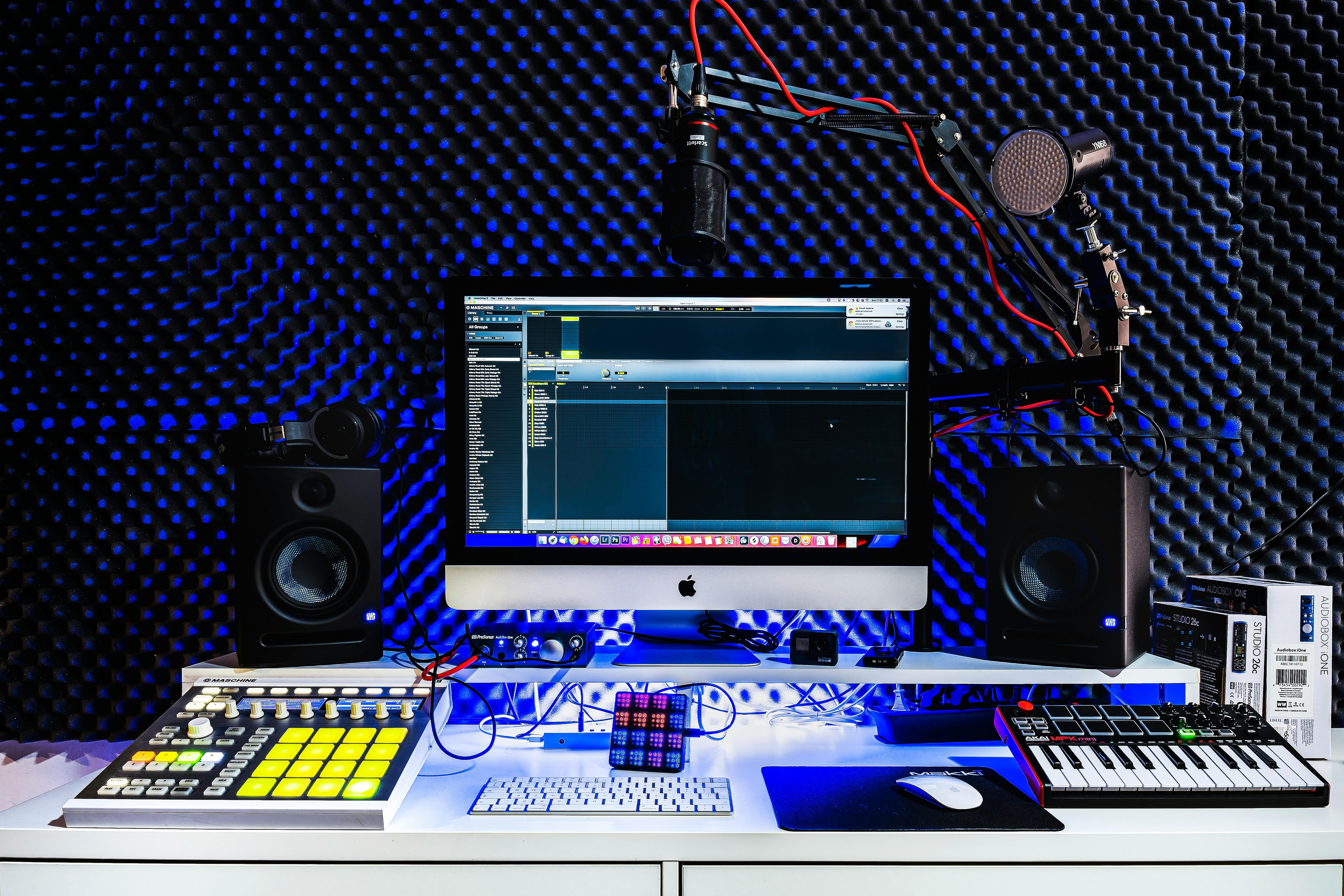Unlock your potential in the world of music with our comprehensive online course on Music Production and Audio Engineering. This course is meticulously designed for self-paced learning, ensuring you can study at your own convenience and absorb the material at your own pace.
From the foundational principles of audio engineering to the advanced techniques required to create professional-quality tracks, this course covers it all. Whether you're just starting out or looking to enhance your existing skills, you'll delve deep into essential topics such as sound design, mixing, mastering, and music theory.
Engage in a variety of hands-on projects that will give you practical experience and a solid understanding of the music production process. You'll also gain proficiency in industry-standard software, equipping you with the tools needed to bring your creative visions to life.
Discover the art of producing music that truly resonates with audiences. Our course is structured to provide you with the knowledge and skills necessary to turn your musical ideas into polished, professional tracks. Start your journey today and transform your passion for music into a tangible skill set. Bring your musical ideas to life and make your mark in the world of music production and audio engineering!
What will i learn?
- Proficient Use of DAW Software: By the end of the course, you will be proficient in using industry-standard digital audio workstation (DAW) software, enabling you to create, edit, and produce professional-quality music tracks.
- Understanding of Audio Engineering Principles: You will gain a comprehensive understanding of audio engineering principles, including sound design, mixing, and mastering, allowing you to produce polished and balanced audio tracks.
- Creation of Original Music Tracks: You will have the skills to create, arrange, and produce your own original music tracks from start to finish, showcasing your ability to apply theoretical knowledge in practical projects.
- Ability to Troubleshoot and Solve Audio Issues: You will learn to identify and resolve common audio production problems, such as noise reduction, equalization, and dynamic range control, ensuring high-quality output.
- Enhanced Music Theory Knowledge: You will enhance your understanding of music theory, including melody, harmony, and rhythm, which will improve your ability to compose and arrange music effectively.
- Portfolio of Completed Projects: By the end of the course, you will have a portfolio of completed music production projects that demonstrate your skills and creativity, which can be used to showcase your abilities to potential employers, clients, or collaborators.
- Computer and Internet Access: You will need a reliable computer (PC or Mac) with internet access to stream course materials, download resources, and participate in online discussions.
- Digital Audio Workstation (DAW) Software: You must have access to industry-standard music production software such as Ableton Live, Logic Pro, FL Studio, or a similar DAW. The course will provide guidance on using these tools, but having one installed and ready is essential.
- Basic Audio Equipment: A pair of quality headphones or studio monitors and a digital audio interface are recommended to accurately hear and produce music tracks. A microphone may also be useful for recording purposes.
- Basic Music Knowledge: While the course is designed for all levels, having a fundamental understanding of music concepts, such as rhythm, melody, and harmony, will be beneficial and help you progress more smoothly through the material.
- Commitment to Hands-On Learning: The course includes practical projects and assignments. You should be prepared to dedicate time to completing these hands-on activities to gain practical experience in music production and audio engineering.
- Motivation and Self-Discipline: As the course is self-paced, you will need a high level of motivation and self-discipline to stay on track and complete the lessons and projects. Setting a regular study schedule can help maintain momentum and ensure steady progress.
-
Course Overview and Objectives
Preview .
-
History and Evolution of Music Production
Preview .
-
Basic Concepts and Terminology
Preview .
-
Overview of Digital Audio Workstations (DAWs)
Preview .
-
Basics of Sound Waves and Frequencies
.
-
Introduction to Acoustics
.
-
Signal Flow and Audio Pathways
.
-
Microphones and Recording Techniques
.
-
Setting Up Your DAW
.
-
Navigating the DAW Interface
.
-
Recording Audio and MIDI
.
-
Editing and Arranging Tracks
.
-
Basics of Music Theory
.
-
Understanding Scales and Chords
.
-
Melody and Harmony
.
-
Rhythm and Timing
.
-
Introduction to Sound Design
.
-
Basics of Synthesis
.
-
Using Synthesizers
.
-
Creating Custom Sounds
.
-
Fundamentals of Mixing
.
-
Equalization (EQ)
.
-
Dynamics Processing (Compression and Limiting)
.
-
Effects and Plugins
.
-
Introduction to Mastering
.
-
Preparing Your Mix for Mastering
.
-
Mastering Techniques and Tools
.
-
Finalizing and Exporting Your Tracks
.
-
Creating a Simple Track
.
-
Remixing a Song
.
-
Producing a Genre-Specific Track
.
-
Collaborating with Other Musicians
.
-
Building Your Portfolio
.
-
Networking in the Music Industry
.
-
Freelancing and Working with Clients
.
-
Continuous Learning and Development
.
-
50 Key Vocabularies with Explanations and Examples
.
-
Core Grammar
.
-
Quiz all Section:
0:00:00

Write a public review